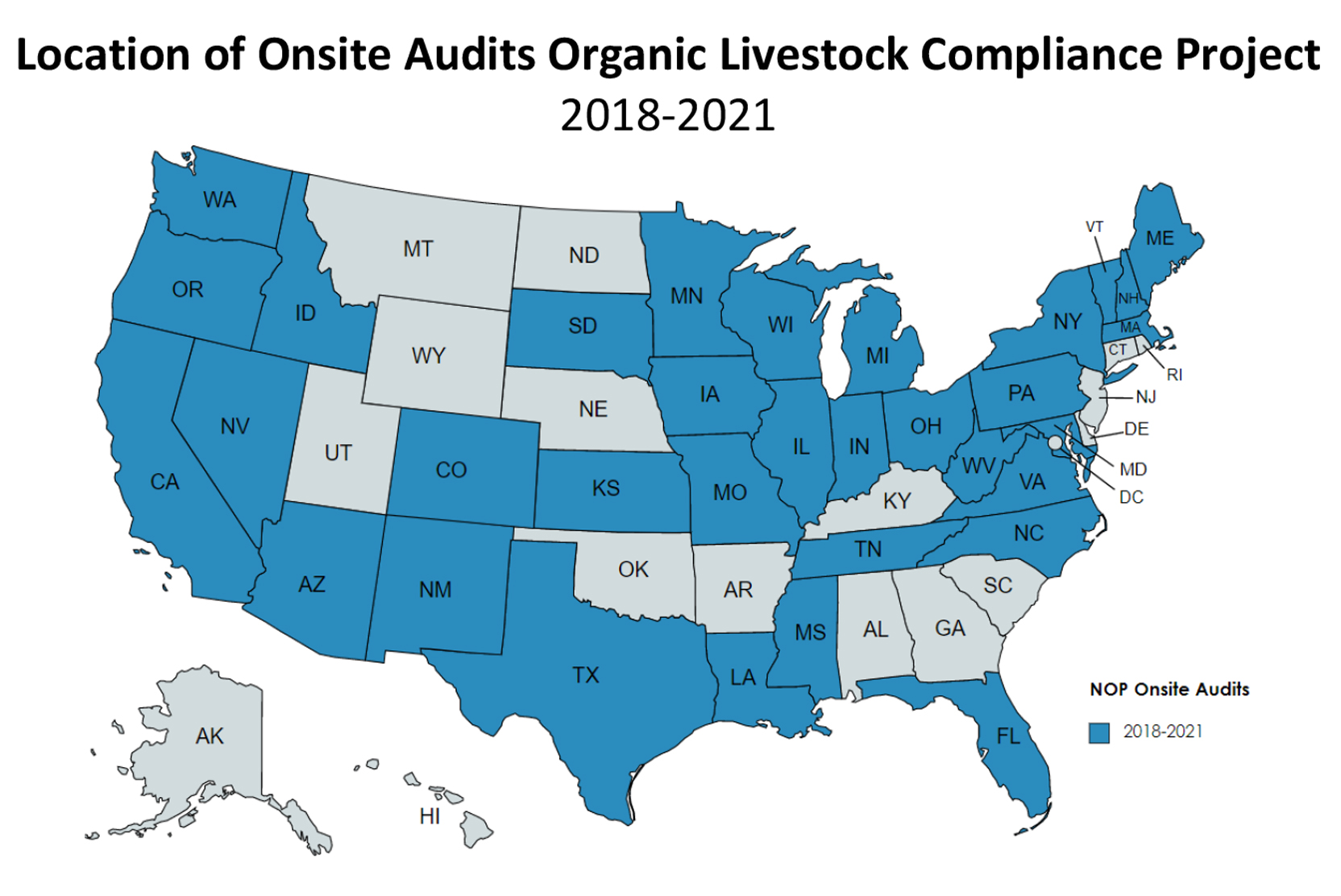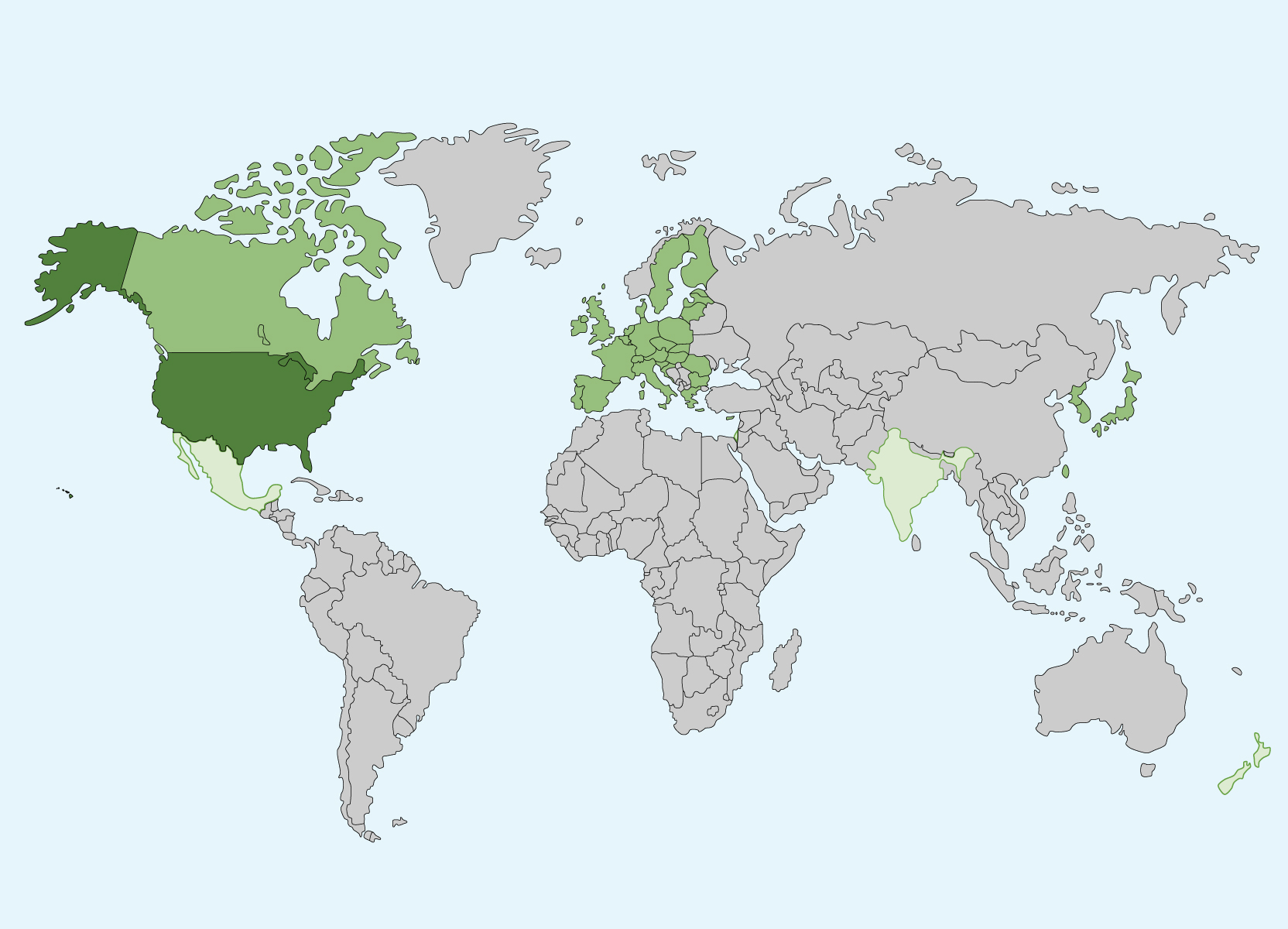4 Enforcement of organic rules and regulations
According to the 2022 Annual Organic Oversight and Enforcement Report, there were 45,830 certified organic farms and businesses worldwide with about 62% being in the United States. That number continues to steadily grow. The manages the organic certification process and audits activities to ensure the integrity of the organic label. Accredited Certification Agencies (ACAs) also play a role in protecting consumer trust in the organic label by issuing noncompliance notices and investigating allegations reported to the NOP.
Complaints can be filed by anyone who believes the farm or certifier has violated the NOP regulations. For instance, farmers and ranchers can be found noncompliant with organic regulations if they do not provide adequate documentation on livestock feed or treatments to their certifiers, or if they use prohibited substances on their operation (advertently or inadvertently) and do not report it to their certifier.
Since 2018, the NOP has conducted a national surveillance program, the Organic Livestock Compliance Initiative, to perform unannounced on-site audits with farms. In 2021, notices of noncompliance were issued to certifiers for not verifying:
- the percentage of dry matter intake obtained from pasture,
- all ruminants have access to pasture throughout the grazing season,
- and temporary confinement practices meet the NOP criteria.

This surveillance project has improved consistency in the application of regulations across organic operations as well as the enforcement efforts of certifiers. Procedures for noncompliance and investigations can be found in Subpart G of 7 CFR, Sections 205.660 – 668. More information can be found at NOP Enforcement Activities.
Penalties
Farmers and certifiers who disagree with a noncompliance notice can submit an appeal within 30 days. If the noncompliance issue is determined to be valid, a wide range of repercussions may ensue depending on the severity. For instance, s may provide an option for the farmer to resolve the issue within a certain time, the Organic Certificate could be suspended or revoked, and/or a financial penalty may be imposed. According to 7 CFR 3.91(i)(b)(xxxvi), a maximum penalty of $20,130 can be issued for knowingly selling or labeling a product as organic unless in accordance with the Organic Foods Product Act of 1990. The use of fraudulent documents to sell organic agricultural products is punishable by fines.
State organic programs
As mentioned previously, 15 state agencies are currently accredited by the NOP to be ACAs. If they wish, states may also implement a state organic program with their own regulations. Those regulations must follow the NOP although states are allowed to implement higher standards with approval from . Only one state, California, has an approved state organic program in the United States. This means that California’s organic program is responsible for enforcing the California Organic Products Act of 2003 and the of 1990. Visit the following websites for more information on organic farm requirements in California:
- California State Organic Program (USDA)
- California State Organic Program (California Department of Food and Agriculture)
International agreements
Products that originate outside of the United States can be sold in the United States as certified organic if the country of origin has a trade agreement with the United States. The NOP works to establish international trade arrangements so that both countries recognize each other’s organic regulations being equivalent. The United States has organic equivalency arrangements with several other countries, allowing exportation to seven countries and importation from 11 countries (see map below). The USDA’s Joint Organic Compliance Committee was created to strengthen monitoring and enforcement of organic products traded between the United States and Mexico. This committee is currently working towards an organic equivalency arrangement with Mexico’s certifiers on policy guidance and training.

Additional resources regarding enforcement activities of the NOP, include these USDA websites:
- How to file a complaint on organic regulations
- List of revoked and suspended Organic Certificates
- Organic Integrity Database
United State Department of Agriculture’s National Organic Program
Accredited Certification Agency
United States Department of Agriculture
Organic Foods Production Act

